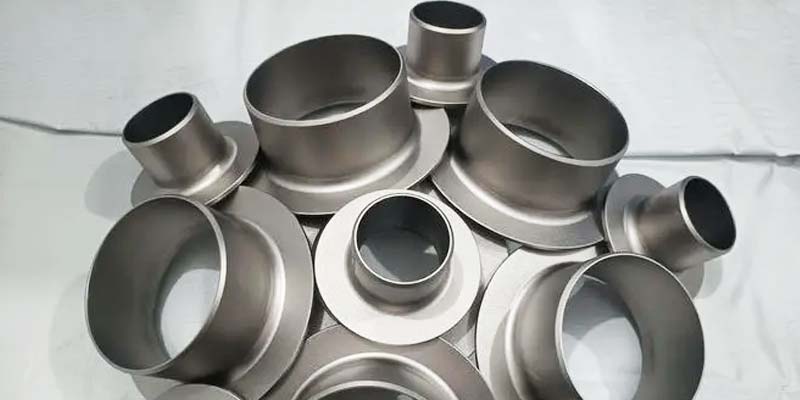- Contact Innally, Let you purchase forgings in China more favorable prices, products more assured!
- Hotline:+(86)15038323776 Email:innally@innally.com
Titanium forgings: Enhance the performance of your products
- Category: Metal forging, Titanium alloy forging
- |
- Date: 12/09/2023
As an important metal product, titanium alloy forgings play a vital role in improving product performance. By mastering the knowledge of raw materials, processing processes and advantages of titanium alloy forgings, we can better understand the application and importance of this key metal material. I hope this article can provide useful reference and inspiration for your product design and manufacture.
Product Details
Titanium alloy is a kind of metal material with excellent properties, which is widely used in various fields. Forgings refer to metal products formed by the forging process, and titanium alloy forgings refer to products that use the forging process to process titanium alloy materials into the desired shape and size. In this article, we will introduce the role of titanium alloy forgings in improving product performance in detail from the aspects of raw materials, processing technology, performance improvement, advantage summary and case analysis.
A, titanium alloy forging raw materials
The raw material of titanium alloy forging is mainly titanium alloy bar material or blank. Titanium alloy is an alloy composed of titanium and other alloying elements, with excellent performance characteristics, such as light weight, high strength, corrosion resistance, easy processing and so on. Titanium alloy forgings can be used mainly Ti-6Al-4V, Ti-5Al-2.5Sn, Ti-6.5Al-3.5Mo-1.5Zr and so on.

- Processing technology of titanium alloy forgings
The processing process of titanium alloy forgings mainly includes the following steps: Heat treatment: the titanium alloy blank is heated to a high temperature, and is maintained for a certain time, so that the internal organization of the material is changed to improve the plasticity and toughness of the material. Cold processing: The titanium alloy billet after heat treatment is rolled, stretched, squeezed and other processes to deform the material and reach the required shape and size. Heat treatment: The titanium alloy forgings are again heat treated to further improve their strength and hardness. Testing: Testing titanium forgings to ensure compliance with relevant standards and customer requirements. In the processing process, the following points need to be paid attention to: the heating and cooling speed should be slow to avoid material cracking or defects. The amount of deformation should be properly controlled to avoid excessive deformation of the material resulting in deterioration of the internal organization. The temperature and time during the heat treatment process should be strictly controlled to ensure the stability of the internal organization of the material and the acquisition of the required properties.
Third, the performance of titanium alloy forging
Titanium alloy forgings processed by forging process have higher strength, hardness and corrosion resistance than traditional titanium alloy products. For example, an aerospace company’s engine components are manufactured with titanium forgings, significantly improving the performance and life of the engine. In addition, in the biomedical field, titanium alloy forgings are also widely used in the manufacture of artificial joints, orthopedic implants and other high-demand medical devices, which greatly improve the quality of life and medical effects of patients.
Four, the advantages of titanium alloy forging
Titanium alloy forgings have the following advantages:
Lightweight: The density of titanium alloy is low, so titanium alloy forging can effectively reduce the weight of the product while ensuring the strength, and is suitable for areas with high requirements for weight. High strength and hardness: Titanium alloy forgings processed by forging process have high strength and hardness, which can meet the needs of various complex and high-strength application scenarios.
Corrosion resistance: Titanium alloy has good corrosion resistance in various chemical environments, so titanium alloy forgings can be used for industrial manufacturing in various corrosive environments.
Easy processing: Titanium alloy forgings have good processing properties and can meet the manufacturing needs of various complex shapes and structures.
Wide range of application: titanium alloy forgings have a wide range of applications in aerospace, automobile manufacturing, biomedical and other fields.
As an important metal product, titanium alloy forgings play a vital role in improving product performance. By mastering the knowledge of raw materials, processing processes and advantages of titanium alloy forgings, we can better understand the application and importance of this key metal material. I hope this article can provide useful reference and inspiration for your product design and manufacture.
nannan
INNALLY mainly provides you with various types of cast and forged parts products. Welcome your inquiries! innally@innally.com
Related Products
Search
Forging center
- Steel forgings
- Aluminium alloy forging
- Titanium alloy forging
- Stainless steel forging
- Copper forging
- Automotive forgings
- Locomotive forging
- Bicycle forgings
- Motorcycle forging
- Rigging and fasteners
- Bearing forging
- Electric power fittings
- Marine forging
- Mechanical forgings for metalworking
- Mining machinery forgings
- Marine engineering forgings
- Construction machinery forgings
Popular product

© 2025. All Rights Reserved.






